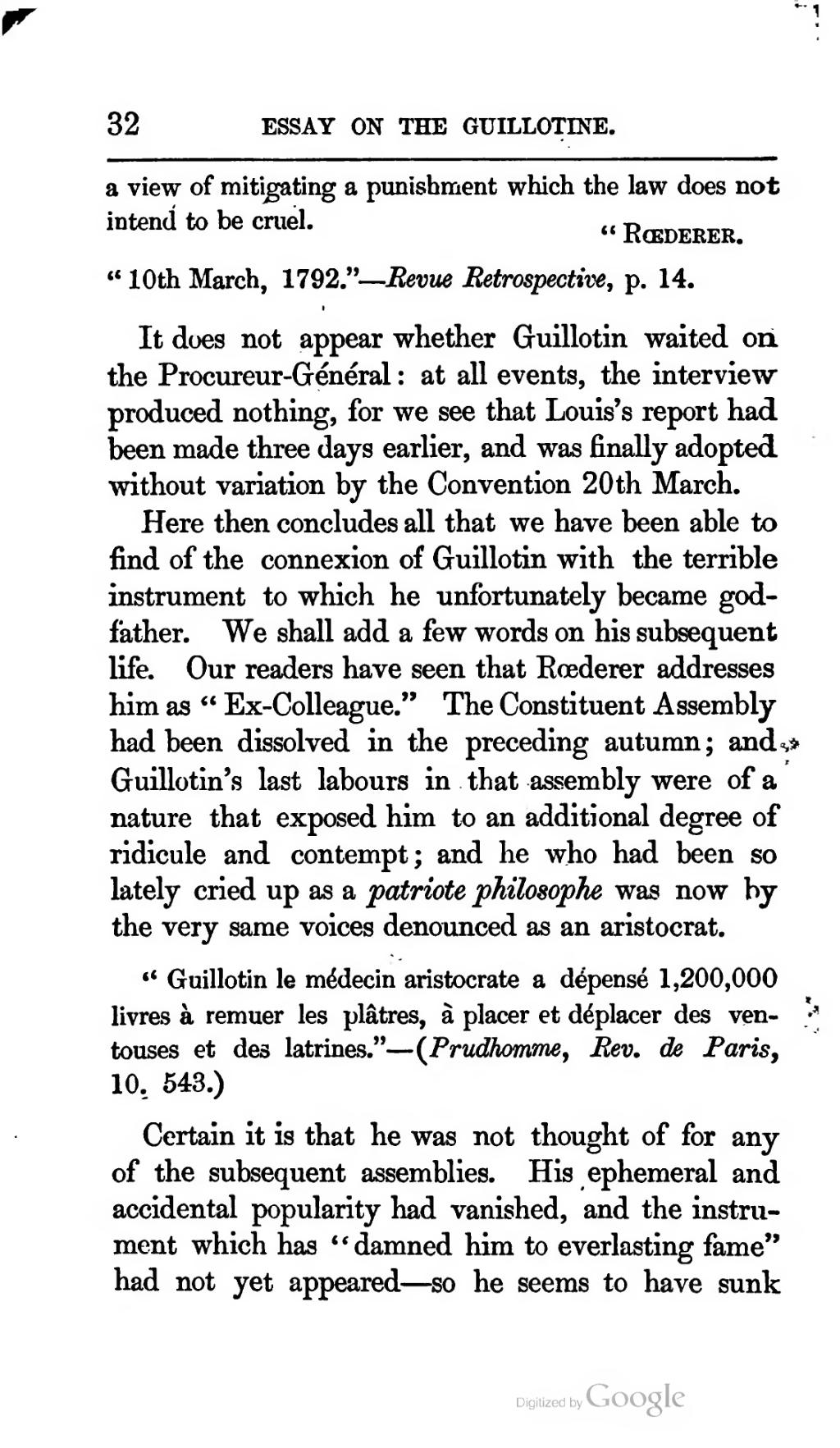a view of mitigating a punishment which the law does not intend to be cruel.
"Rœderer.
"10th March, 1792."—Revue Retrospective, p. 14.
It does not appear whether Guillotin waited on the Procureur-Général: at all events, the interview produced nothing, for we see that Louis's report had been made three days earlier, and was finally adopted without variation by the Convention 20th March.
Here then concludes all that we have been able to find of the connexion of Guillotin with the terrible instrument to which he unfortunately became godfather. We shall add a few words on his subsequent life. Our readers have seen that Rœderer addresses him as "Ex-Colleague." The Constituent Assembly had been dissolved in the preceding autumn; and Guillotin's last labours in that assembly were of a nature that exposed him to an additional degree of ridicule and contempt; and he who had been so lately cried up as a patriote philosophe was now by the very same voices denounced as an aristocrat.
"Guillotin le médecin aristocrate a dépensé 1,200,000 livres à remuer les plâtres, a placer et déplacer des ventouses et des latrines."—(Prudhomme, Rev. de Paris, 10, 543.)
Certain it is that he was not thought of for any of the subsequent assemblies. His ephemeral and accidental popularity had vanished, and the instrument which has "damned him to everlasting fame" had not yet appeared—so he seems to have sunk
